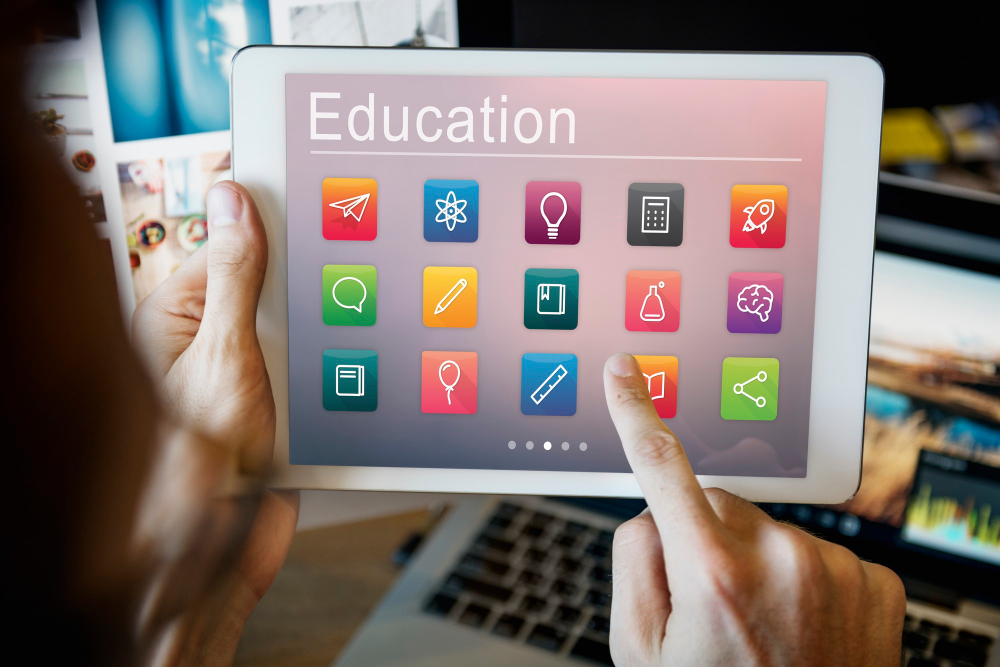
Education app development companies are in charge of transforming the learning experience through cutting-edge technologies. These companies are adopting innovative approaches to make education more engaging, personalized, and accessible. As the demand for digital learning solutions grows, education app developers are constantly evolving to meet the needs of both students and educators.
1. Personalized Learning with AI
Firstly, personalized learning through AI has gained significant momentum. Education apps now leverage AI to assess student performance. Consequently, they can create customized learning paths for each student. Moreover, AI adjusts the difficulty level and suggests relevant resources, making the learning process smoother.
Case Study: Duolingo
Duolingo uses AI to personalize lessons based on user progress. As a result, users receive exercises tailored to their learning needs. This personalized approach keeps students engaged and motivated.
2. Gamification for Engagement
Additionally, gamification is transforming education apps. By incorporating game-like elements such as rewards and badges, learning becomes more fun. This trend encourages student participation and helps with knowledge retention.
Case Study: Kahoot!
Kahoot! has revolutionized quizzes by making them interactive. Teachers can create real-time quizzes, making students feel competitive. Consequently, the gamified approach leads to better engagement and results.
3. AR Integration
Furthermore, augmented reality (AR) is redefining how students interact with educational content. AR enriches learning by allowing students to experience digital elements within their real environment. This approach simplifies complex topics.
Case Study: JigSpace
JigSpace allows students to visualize 3D models, enhancing the learning experience. It uses AR to bring concepts to life, making lessons more engaging. As a result, students grasp difficult concepts more effectively.
4. Learning Management System (LMS) Integration
Education apps increasingly integrate with Learning Management Systems (LMS). These integrations simplify communication between teachers and students. In addition, LMS platforms streamline the assignment process and track student progress.
Case Study: Google Classroom
Google Classroom integrates seamlessly with many educational apps. Teachers use it to assign homework and monitor student performance. Consequently, the app creates a centralized learning experience for educators and students alike.
5. Video-Based Learning
Moreover, video-based learning has become a popular trend. Video lessons allow students to learn at their own pace. Additionally, video content breaks down complex topics into digestible pieces, improving comprehension.
Case Study: Khan Academy
Khan Academy provides a wide range of video tutorials. By offering free, high-quality content, the platform reaches students worldwide. Moreover, its video-based learning model helps students understand challenging subjects more easily.
6. Cloud-Based Solutions
Cloud-based apps offer students greater flexibility. These platforms ensure that educational materials are accessible anytime, anywhere. Moreover, cloud-based solutions support collaboration between teachers and students.
Case Study: Zoom
Zoom has become a vital tool in education. It enables cloud-based video conferencing, allowing teachers to conduct virtual classes. As a result, Zoom facilitates remote learning, making education accessible from anywhere.
Conclusion
Education app development companies continue to innovate, reshaping the future of education through personalized learning and gamification. These trends are paving the way for more engaging, accessible, and efficient education solutions.
Ready to build the next big education app? Contact Fusion Informatics today for innovative, customized solutions that will transform your e-learning platform and help you stay ahead in this rapidly evolving industry.













